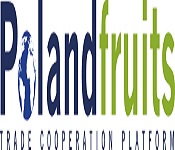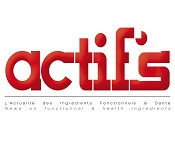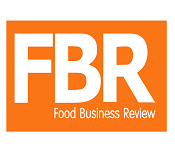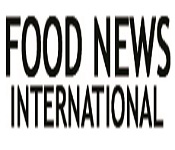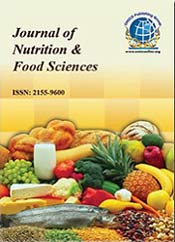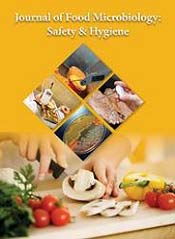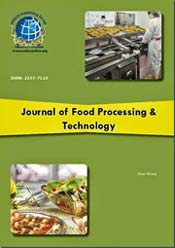Theme: Forum for Innovation in Food, Nutrition and Public Health
Food & Nutrition 2018
- Message from the Mayor
- About Conference
- Scientific Session
- Nevada Lt. Governors Recognition
- Market Analysis
Food & Nutrition 2018 invites all the participants from all over the world to attend “21st International Conference on Food & Nutrition” during July 25-26, 2018 at Vancouver, Canada. Food & Nutrition will focus on the theme “Forum for Innovation in Food, Nutrition and Public Health”.
Conference Series LLC Ltd is an open resource platform that conducts 3000+ global events including International Conferences, Workshops, Symposia, Trade Shows, Exhibitions and Science Congresses in all the major scientific disciplines, including Clinical, Medical, pharmaceutical, Engineering, Technology, Business Management and Life Sciences across America, Europe, The Middle East, and Asia Pacific. It is reaching over 25 million researchers, scholars, students, professionals and corporate entities all over the globe.
Food & Nutrition Conference is comprised of various tracks and sessions designed to offer comprehensive sessions that address current issues in the field of Food & Nutrition.
-
Food, Nutrition and Health
-
Food Science
-
Food Safety and Management
-
Food and Beverages
-
Food Microbiology
-
Food and Economy
-
Nutrition
-
Nutraceuticals and Nutrition Supplements
-
Clinical Nutrition
-
Malnutrition and Undernutrition
-
Dieticians and Nutritionists
-
Obesity
-
Public Health Research
Target Audience
Food & Nutrition conference invites a common platform for Deans, Directors, Professors, Students, Research scholars and other participants including CEO, Consultant, Head of Management, Economist, and Project Manager from business and industrial sectors across the world in order to establish a scientific relation between academic experts and other participants through information sharing and networking. The Conference will also have a space for companies and/or institutions to present their services, products, innovations and research results.
Importance & Scope?
The field of Food & Nutrition have not only helped the development in different fields in science and technology but also contributed towards the improvement of the quality of human life to a great extent. All this has become possible with the different discoveries and inventions leading to the development of various applications. The core aim of Food & Nutrition 2018 conference is to provide an opportunity for the delegates to meet, interact and exchange new ideas in the various areas of Food & Nutrition. This International Food & Nutrition conference will feature world renowned keynote speakers, plenary speeches, young research forum, poster presentations, technical workshops and career guidance sessions.
Why Vancouver, Canada?
Vancouver is a coastal seaport city in Canada, located in the Lower Mainland region of British Columbia. As the most populous city in the province, the 2016 census recorded 631,486 people in the city, up from 603,502 in 2011. There are five public universities in the Greater Vancouver area, the largest being the University of British Columbia (UBC) and Simon Fraser University (SFU), with a combined enrolment of more than 90,000 undergraduates, graduates, and professional students in 2008. UBC consistently ranks among the 40 best universities in the world, and is among the 20 best public universities.
Vancouver is one of North America’s most under-rated tourist destinations. It is a modern, travel-friendly city with a unique mix of cultures. The relatively mild Pacific Northwest climate and an energetic restaurant and nightlife scene are other features that make this such an attractive city. Majestic mountains, Sparkling ocean, Rainforests and beautiful foliage throughout all four seasons make Vancouver one of the most beautiful cities in the world. Canadians are known for our friendly nature, and Vancouver's citizens take great pride in our welcoming, clean, safe streets - day or night, all year round.
Conference Series LLC Ltd successfully hosted the 17th International Conference on Food & Nutrition during May 22-24 2017, at Las Vegas, USA. The conference focused on the theme “Accelerating Research and Innovation in Food & Nutrition”. The conference was successful in gathering eminent speakers from various reputed organizations and their paramount talks enlightened the gathering. With the encouragement from the enormous feedback from the participants and supporters of Food & Nutrition-2017.
Food Conferences | Nutrition Conferences | Food & Nutrition Conferences | Dietician Conferences | Public Health Research Conferences
21st International Conference on Food & Nutrition Annual Conference will offer 13 panel tracks, providing you with plenty of choices where you can submit your proposal. They are:
Track 1: Food, Nutrition and Health
Food has been a basic part of our existence. Intake of food ensures growth in children and youth, maintains good health throughout life. Nutrients are components of foods needed for body in adequate amounts for proper growth, reproduction and leading normal life. Nutrition includes the process from eating food to its usage in various functions of body. The science of nutrition deals with what nutrients we need, in what quantity, how to get them and how the body utilizes them. Adequate, optimum and good nutrition indicates the right amount and proportion of nutrients for proper utilization for achieving highest level of physical and mental health. First function of food is to provide energy. Body needs energy to sustain involuntary processes essential for continuing life. Food regulates the activities of the body including – heart beat, maintaining body temperature, muscle contraction, water balance, blood clotting and removal of waste products from the body. Food helps in improving the immune system and improves resistance power of the body. The use of food in the body involves three processes – digestion, absorption and utilization of nutrients in the body.
Topics to be covered:
· Food hydrocolloids
· Meat science
· Food quality
. Halal food
. Food chemistry
· Food toxicology
. Digestion, Absorption and Utilisation of Nutrients
. Recommended Dietary Allowances for Nutrients
Related Societies and Associations:
Association for the Study of Food and Society, USA; American Anthropological Association, USA; The North American Food Systems Network (NAFSN) , USA; AFJ Association of Food Journalists, USA; IACSIT Food and Agriculture Society (FES), Asia; Korean Society of Food Science and Technology, Asia; Chinese American Food Society, USA.
Related Conferences:
ASPEN 2018 Nutrition Science & Practice Conference, January 22-25, 2018, Las Vegas, USA; 21st Euro-Global Summit on Food & Beverages, March 08-10, Berlin, Germany; Global Diet and Nutrition Meeting, March 19-20, 2018, Singapore, Asia; 17th Food Colloid Conference, April 08-11, 2018, England, UK; 3rd International Conference on Food Chemistry & Nutrition, May 23-24, 2018, Montreal, Canada.
Track 2: Food Science
Food science includes a number of areas of study which span the continuum from the production and processing of food to its marketing, consumption, and impact on the health of individuals and the community. Food science draws from many disciplines like biology, chemical engineering, and biochemistry to understand food processes and ultimately improve food products for the general public. Physical, microbiological, and chemical study of food helps in developing the safe, nutritious foods and innovative packaging that store in supermarket.
Topics to be covered:
· Food processing
. Food technology
· Food packaging
· Food engineering
· Agri-food technology
· Cereal chemistry and technology
· Dairy technology
· Organic food and manufacturing
· Brewing and malting technology
Related Societies and Associations:
IACSIT Food and Agriculture Society (FES), Asia; Spanish Association of Graduates and Doctors in Food Science and Technology, Spain; German Federation of Food Science and Technology, Germany; International Union of Food Science and Technology, Canada; European Federation of Food Science and Technology, Netherlands; Association of Austrian food & biotechnologists, Austria; Society of Food Hygiene and Technology (SOFHT) UK; Italian Association of Food Technology, Italy; The Food and Beverage Association of America, USA; The Food society, USA; Guelph Food Technology Centre, Canada.
Related Conferences:
3rd International Global Food Security & Sustainability Conference, March 22-23, 2018, New York, USA; 21st World Congress on Nutrition, Food Science & Public Health, July 23-24, 2018 Melbourne, Australia; 20th International Conference on Food Science & Nutrition, August 27-28, 2018, Paris, France; 26th International ICFMH Conference, September 03-06, 2018, Berlin, Germany; 8th International Conference on Food Studies, October 25-26, 2018, Vancouver, Canada.
Track 3: Food Safety & Management
Food Safety & Management is a logical train portraying taking care of, arrangement, and capacity of nourishment in ways that anticipate foodborne disease. This incorporates various schedules that ought to be taken after to stay away from potential safety hazards. A 2003 World Health Organization (WHO) report reasoned that around 30% of revealed food poisoning flare-ups in the WHO European Region happen in private homes. According to the WHO and CDC, in the USA alone, every year, there are 76 million instances of foodborne illness prompting 325,000 hospitalizations and 5,000 death. To provide exposure to technologies, government / institutional assistance, increase international tie-ups and to provide knowledge about recent trends in Food & Nutrition sector is the aim of organizing these types of food conferences, food meetings, and food events.
Topics to be covered:
· Food safety regulatory affair
· Challenges in food hygiene and safety
· Microbiological and chemical aspects of food safety
· Advances in food management
· Foodomics approaches in food safety
· Food safety oil and fat analysis
· Environmental protection co-management with food safety
Related Societies and Associations:
The Food and Beverage Export Association, Italy; ISEKI-food Association, Austria; Safe Foods, UK; Advisory committee on the microbiological safety of food, UK; Asian Food Safety and Security Association, Japan; Association for the Study of Food and Society, USA; American Anthropological Association, USA; The North American Food Systems Network (NAFSN) , USA; AFJ Association of Food Journalists, USA; IACSIT Food and Agriculture Society (FES), Asia; Korean Society of Food Science and Technology, Asia.
Related Conferences:
Sedona Health and Nutrition Conference, January 18-19, 2018, Sedona, USA; ICFSN 2018 April 08-10, 2018, Copenhagen, Denmark; 2nd Global Summit on Nutritional Science & Food Chemistry May 24-25, 2018 at Valencia, Spain; 8th International Conference on Food Safety & Regulatory Measures, June 11-23, 2018, Barcelona, Spain; 21st World Congress on Nutrition, Food Science & Public Health, July 23-24, 2018 Melbourne, Australia.
Track 4: Beverages Processing
Business and organizations that produce, manage, regulate, and distribute food and beverages comprise the food and beverage production industry. As a fundamental human need, food and beverages always have played a central part in our lives. Our ancestors lived or died according to their ability to grow food, hunt for food, or fight for food. People have always sought out new sources of food. Throughout history people have identified the plants, insects, fungi, and animals in their region capable of sustaining them. In time, agrarian cultures were able to trade or sell their surplus food supplies for other goods and services, and food became an important part of the commerce of a society. As societies came into contact with each other, they also learned of different types of foods available in different parts of the world. The aim of organizing the food conferences, food meetings, food events is to provide exposure to technologies, government / institutional assistance, increase international tie-ups and to provide knowledge about recent trends in Food & beverages Sector though this food & nutrition conference.
Topics to be covered:
· Food beverages production
. Coffee cocoa and tea
. Alcoholic and non-alcoholic beverages
. Fish and marine products
. Beverage packaging
. Quality food beverages
Related Societies and Associations:
Association for the Study of Food and Society, USA; American Anthropological Association, USA; The North American Food Systems Network (NAFSN) , USA; AFJ Association of Food Journalists, USA; IACSIT Food and Agriculture Society (FES), Asia; Korean Society of Food Science and Technology, Asia; Catalan Food Safety Agency, USA; Canadian Restaurant and Foodservices Association, Canada; Committee on World Food Security, Italy; North American Meat Processors Association , USA; Processed Vegetable Growers' Association, UK.
Related Conferences:
ASPEN 2018 Nutrition Science & Practice Conference, January 22-25, 2018, Las Vegas, USA; 21st Euro-Global Summit on Food & Beverages, March 08-10, Berlin, Germany; Global Diet and Nutrition Meeting, March 19-20, 2018, Singapore, Asia; 17th Food Colloid Conference, April 08-11, 2018, England, UK; 3rd International Conference on Food Chemistry & Nutrition, May 23-24, 2018, Montreal, Canada.
Track 5: Food Microbiology
Bacteria are the most important microorganisms to the food processor. Most are harmless, many are highly beneficial, some indicate the probable presence of filth, disease organisms, spoilage and a few cause disease. There are thousands of species of bacteria, but all are single-celled and fall into three basic shapes: spherical, straight rods, and spiral rods. To see them, you need a microscope that magnifies about 1000-fold.
Topics to be covered:
· Food mycology
· Microbial aspects of food spoilage and quality
· Microbial ecology of foods
· Food utilization
. Liquid concentration
. Sanitation technologies
. Sustainable technologies
. Food contamination
Related Societies and Associations:
Scotland Food & Drink, Scotland; SAFE FOODS, USA; Processed Vegetable Growers Association, Australia; Potato Council, USA; Norwegian Ministry of Agriculture and Food Landbruks, Norwegian; Norwegian Food Safety Authority Mattilsynet, Norwegian; Australian Institute of Food Science and Technology, Australia; International Commission on Microbiological Specification for Foods, Australia.
Related Conferences:
3rd International Global Food Security & Sustainability Conference, March 22-23, 2018, New York, USA; 21st World Congress on Nutrition, Food Science & Public Health, July 23-24, 2018 Melbourne, Australia; 20th International Conference on Food Science & Nutrition, August 27-28, 2018, Paris, France; 26th International ICFMH Conference, September 03-06, 2018, Berlin, Germany; 8th International Conference on Food Studies, October 25-26, 2018, Vancouver, Canada.
Track 6: Food and Economy
The Food Economy is increasingly shaped by such new issues as sustainability, safety and quality standards, consumer health, and industry concentration. Cultural and ethical arguments gain momentum when aligned with issues such as economic welfare and stakeholder interests. The food economy grows ever more global and encompasses more elusive elements like trust, integrity, transparency, corporate social responsibility and creating emotional bonds with customers. The Food Economy is inextricably interrelated with globalisation, changes in consumer demand for food and energy, the ICT revolution, sustainability issues, and shifts in the relationship between private companies and public regulators. There are many ways to think about food which has been discussed in various food events, food conferences in the simplest sense, food is a fuel, food provides the energy needed to perform daily functions and maintain normal metabolic processes.
Topics to be covered:
· Food laws
· Food security
· Regulations and policies
· Food safety and policies
· Food service and entrepreneurship
· Multilateral agreements
. Food marketing and management
. Food consumer trends
Related Societies and Associations:
The Association of Food Technology, Turkey; ISEKI Food Association, Austria; Alder Food Security Society Canada; Richmond Food Security Society Canada; Catalan Food Safety Agency, Spain; Canadian Restaurant and Foodservices Association, Canada; IACSIT Food and Agriculture Society (FES), Asia.
Related Conferences:
Sedona Health and Nutrition Conference January 18-19, 2018, Sedona, USA; ICFSN 2018, April 08-10, 2018, Copenhagen, Europe; 2nd Global Summit on Nutritional Science & Food Chemistry May 24-25, 2018 at Valencia, Europe; 8th International Conference on Food Safety & Regulatory Measures, June 11-23, 2018, Barcelona, Europe; 21st World Congress on Nutrition, Food Science, & Public Health, July 23-24, 2018 Melbourne, Australia.
Track 7: Nutrition
Nutrition is the science that interprets the interaction of nutrients and other substances in food in relation to maintenance, growth, reproduction, health and disease of an organism. It includes food intake, absorption, assimilation, biosynthesis, catabolism and excretion. To provide exposure to technologies, government / institutional assistance, increase international tie-ups and to provide knowledge about recent trends in Food & beverages sector is the aim of organizing these types of nutrition conferences, nutrition meetings, and nutrition events.
Topics to be covered:
· Carbohydrate and protein nutrition
· Nutrition in women’s health and pregnancy
· Nutrition in medicine
· Nutrition in chronic illness
. Nutrition in children
. Sport nutrition
. Animal nutrition
Related Societies and Associations:
Academy of Nutrition and Dietetics American College of Nutrition USA; American Society for Clinical Nutrition, USA; Society for Nutrition Education and Behavior, USA; The Nutrition Society of Australia, Australia.
Related Conferences:
Sedona Health and Nutrition Conference January 18-19, 2018, Sedona, USA; School Nutrition Industry Conference, January 21-23, 2018 New Orleans, USA. ASPEN 2018 Nutrition Science & Practice Conference, January 22-25, 2018, Las Vegas, USA; 17th World Congress on Obesity & Nutrition, March 19-20, 2018 Dubai, UAE; 3rd International Conference on Food Chemistry & Nutrition, May 23-24, 2018, Montreal, Canada.
Track 8: Nutraceutical and Nutrition Supplements
Nutraceuticals generally depend on the source. They can be categorized on the basis of their natural sources, pharmacological conditions, and also chemical composition of the products. Utmost they are grouped in the subsequent categories like Dietary supplements, Functional Foods, vitamins and minerals, Healing food and Pharmaceuticals. Nutraceuticals are derived from different types of herbals, fruits and marine resources. Nutrition supplements are items that are usually considered non-food items that are used to enhance your nutritional status. Supplements may include, but are not limited to, vitamins, minerals, bars, and energy drinks or sports nutrition products to boost performance. Supplements should be used along with a healthy diet, but not replace it.
Topics to be covered:
· Nutrients
· Dietary supplements
· Vitamin and protein supplements
· Probiotics and prebiotics
· Nutraceutical in cancer therapy
· Bioactive nutraceuticals
· Nutraceuticals for cardiovascular health
· Nutraceutical in weight manager research
Related Societies and Associations:
Academy of Nutrition and Dietetics American College of Nutrition USA; American Society for Clinical Nutrition, USA; Society for Nutrition Education and Behavior, USA; The Nutrition Society of Australia, Australia; American Nutrition Association, USA; The International Society of Sports Nutrition, USA; The German Society for Nutrition Medicine, Germany.
Related Conferences:
5th International Conference on Nutrition and Growth, March 01-03, 2018, Paris, France; Global Diet and Nutrition Meeting March 19-20, 2018, Singapore, Asia; ICFSN 2018 April 08-10, 2018, Copenhagen, Denmark; 19th International Congress on Nutrition & Health, April 12-14, 2018 Amsterdam, Netherlands; 21st European Nutrition and Dietetics Conference, June 11-13, 2018 Dublin, Ireland.
Track 9: Clinical Nutrition
Clinical Nutrition is the diet of patients in health care. Clinical in this logic mentions to the administration of patients, with not only outpatients at clinics, but also inpatients in clinics. It integrates mainly the systematic arenas of nourishment and dietetics. It goals to have a healthy energy equilibrium in patients, as well as giving adequate quantities of additional nutrients for instance vitamins, protein, minerals. The global clinical nutrition market is estimated to be USD XX million in 2016 and is expected to reach USD 51,174 million by 2021, growing at a CAGR of over 4.8% during the forecast period from 2017 to 2022.
Topics to be covered:
· Nutrition and cardiovascular health
· Role of nutrition in prevention of disease
· Nutrition physiology
· Enternal nutrition
· Pharmaceutical
· Health and nutrition
Related Societies and Associations:
Academy of Nutrition and Dietetics American College of Nutrition USA; American Society for Clinical Nutrition, USA; Society for Nutrition Education and Behavior, USA; The Nutrition Society of Australia, Australia; American Society for Nutrition, USA; The European Nutrition for Health Alliance, UK; Australian Society for Parenteral & Enteral Nutrition, Australia; Japan Society of Nutrition and Food Science, Japan.
Related Conferences:
2nd Global Summit on Nutritional Science & Food Chemistry May 24-25, 2018 at Valencia, Spain; Nutrition 2018 June 09-12, 2018, Boston, USA; 21st World Congress on Nutrition, Food Science & Public Health, July 23-24, 2018 Melbourne, Australia; 20th International Conference on Food Science & Nutrition, August 27-28, 2018, Paris, France; 26th International ICFMH Conference, September 03-06, 2018, Berlin, Germany; 8th International Conference on Food Studies, October 25-26, 2018, Vancouver, Canada.
Track 10: Malnutrition and Undernutrition
When most people think of malnutrition, they often think of someone who is suffering from under-nutrition. Under-nutrition occurs when a person consumes a diet that does not meet the necessary requirements for the amount of essential nutrients or calories a person needs to remain healthy. This type of malnutrition can occur when people are not eating enough food, or when the food they are eating does not contain well-balanced nutrients. The World Health Organization estimates that one out of every three people is suffering from a deficiency in one or more essential nutrients. A deficiency in iron can cause a person to become anaemic, which can result in fatigue, increased risk of infection and increased risk of haemorrhaging during childbirth. Iodine deficiency is also very common, with one-third of the human population suffering from a lack of iodine. Iodine is important for proper functioning of the thyroid gland, which is responsible for producing hormones that manage the body's metabolic rate. A lack of iodine can cause stunted growth, mental delays and the creation of goitres, which are when the thyroid glands at the base of the neck become swollen.
Topics to be covered:
· Urban malnutrition
· Over nutrition
· Protein energy malnutrition
· Nutrition epidemiology
· Causes and effects of malnutrition
. Malnutrition in children
. Malnutrition in women and teenagers
. Malnutrition health risks and syndromes
Related Societies and Associations:
American Nutrition Association, USA; The International Society of Sports Nutrition, USA; The German Society for Nutrition Medicine, Germany; Academy of Nutrition and Dietetics American College of Nutrition USA; American Society for Clinical Nutrition, USA; Society for Nutrition Education and Behavior, USA; The Nutrition Society of Australia, Australia.
Related Conferences:
Sedona Health and Nutrition Conference January 18-19, 2018, Sedona, USA; School Nutrition Industry Conference, January 21-23, 2018 New Orleans, USA. ASPEN 2018 Nutrition Science & Practice Conference, January 22-25, 2018, Las Vegas, USA; 17th World Congress on Obesity & Nutrition, March 19-20, 2018 Dubai, UAE; 3rd International Conference on Food Chemistry & Nutrition, May 23-24, 2018, Montreal, Canada.
Track 11: Dietician and Nutritionists
A dietician (or dietician) is an expert in dietetics; that is, human nutrition and the regulation of diet. A dietician alters their patient's nutrition based upon their medical condition and individual needs. Dieticians are the only healthcare professionals licensed to assess, diagnose, and treat nutritional problems. For example, safely regulating the diet of a patient with Crohn's disease is out of physician's scope of expertise, thus a dietician must be called to permit any changes based upon their knowledge of nutritional biochemistry. Dieticians work in a variety of settings from clinical to community and public policy to media communications. The aim of organizing the nutrition conferences, nutrition meetings, nutrition events is to provide exposure to technologies, government / institutional assistance, increase international tie-ups and to provide knowledge about recent trends in Food & beverages Sector though this food conference.
Topics to be covered:
· Nutrigenomics
· Human and community nutrition
· Dietics
· Nutrition screening and nutritional risks
· Nutritional disorders
· Nutrition physiology
· Ruminant nutrition
Related Societies and Associations
American Society for Nutrition, USA; The European Nutrition for Health Alliance, UK; Australian Society for Parenteral & Enteral Nutrition, Australia; Japan Society of Nutrition and Food Science, Japan; Academy of Nutrition and Dietetics American College of Nutrition USA; American Society for Clinical Nutrition, USA; Society for Nutrition Education and Behavior, USA; The Nutrition Society of Australia, Australia.
Related Conferences:
5th International Conference on Nutrition and Growth, March 01-03, 2018, Paris, France; Global Diet and Nutrition Meeting March 19-20, 2018, Singapore, Asia; ICFSN 2018 April 08-10, 2018, Copenhagen, Denmark; 19th International Congress on Nutrition & Health, April 12-14, 2018 Amsterdam, Netherlands; 21st European Nutrition and Dietetics Conference, June 11-13, 2018 Dublin, Ireland.
Track 12: Obesity
Obesity means having too much body fat. It is different from being overweight, which means weighing too much. The weight may come from muscle, bone, fat, and/or body water. Both terms mean that a person's weight is greater than what's considered healthy for his or her height. Obesity occurs over time when you eat more calories than you use. The balance between calories-in and calories-out differs for each person. Factors that might affect your weight include your genetic makeup, overeating, eating high-fat foods, and not being physically active. Being obese increases your risk of diabetes, heart disease, stroke, arthritis, and some cancers. If you are obese, losing even 5 to 10 percent of your weight can delay or prevent some of these diseases.
Topics to be covered:
· Obesity diet
· Childhood obesity
· Current research, control and prevention of obesity
· Obesity and diabetes
· Obesity and endocrinology
. Genetic obesity
. Obesity in women
Related Societies and Associations:
Academy of Nutrition and Dietetics American College of Nutrition USA; American Society for Clinical Nutrition, USA; Society for Nutrition Education and Behavior, USA; The Nutrition Society of Australia, Australia; American Nutrition Association, USA; The International Society of Sports Nutrition, USA; The German Society for Nutrition Medicine, Germany.
Related Conferences:
2nd Global Summit on Nutritional Science & Food Chemistry May 24-25, 2018 at Valencia, Europe; Nutrition 2018 June 09-12, 2018, Boston, USA; 21st World Congress on Nutrition, Food Science & Public Health, July 23-24, 2018 Melbourne, Australia 20th International Conference on Food Science & Nutrition, August 27-28, 2018, Paris, France; 26th International ICFMH Conference, September 03-06, 2018, Berlin, Germany; 8th International Conference on Food Studies, October 25-26, 2018, Vancouver, Canada.
Track 13: Public Health Research
In the field of medicine, clinicians cure diseases and injuries one patient one time. But in public health, the disease prevention and injury. Public health educators, practitioners and researchers effort with groups and people. They recognize the reasons of disease and incapacity. They instrument broader scale solutions.
Topics to be covered:
· Innovative diagnostic and therapeutic product
· Effect of social and behavioural factors on nutrition
· High risks nutrition disorders management
· Health life style promotion
· Nutrition quality on consumer health
Related Societies and Associations:
Academy of Nutrition and Dietetics American College of Nutrition USA; American Society for Clinical Nutrition, USA; Society for Nutrition Education and Behavior, USA; The Nutrition Society of Australia, Australia; French Society for Clinical Nutrition, France; British Association for Applied Nutrition & Nutritional therapy, UK; American Society for Nutrition, USA; The European Nutrition for Health Alliance, UK; Australian Society for Parenteral & Enteral Nutrition, Australia; Japan Society of Nutrition and Food Science, Japan.
Related Conferences:
Sedona Health and Nutrition Conference January 18-19, 2018, Sedona, USA; School Nutrition Industry Conference, January 21-23, 2018 New Orleans, USA. ASPEN 2018 Nutrition Science & Practice Conference, January 22-25, 2018, Las Vegas, USA; 17th World Congress on Obesity & Nutrition, March 19-20, 2018 Dubai, UAE; 3rd International Conference on Food Chemistry & Nutrition, May 23-24, 2018, Montreal, Canada.
Food Conferences | Nutrition Conferences | Food & Nutrition Conferences | Dietician Conferences | Public Health Research Conferences

Market Analysis Report:
The 21st International Conference on Food & Nutrition to be held at Vancouver, Canada during July 25-26, 2018 hosted by ConferenceSeries through the theme "Forum for Innovation in Food, Nutrition and Public Health", conference will explore the advances in Food Science, Nutrition, Dietician and Public Health etc. It will be a premier event that brings together a unique and International mix of experts, researchers and decision makers both from academia and industry across the globe to exchange their knowledge, experience and research innovations to build a world Food Scientist & Nutritionist meet.
For more details please visit- http://food.conferenceseries.com/
Importance of Conference:
Food & Nutrition offers a fantastic opportunity to meet and make new contacts in the field of Food & Nutrition, by providing collaboration spaces and break-out rooms with tea and lunch for delegates between sessions with invaluable networking time for you. It allows delegates to have issues addressed on Food Science by recognized global experts who are up to date with the latest developments in the Food & Nutrition field and provide information on new techniques and technologies. This International Food & Nutrition conference will feature world renowned keynote speakers, plenary speeches, young research forum, poster presentations, technical workshops and career guidance sessions.
Research and Business Value:
1. Globally:
The global food and beverage industry is growing at 3.5% a year and is expected to be worth more than US$7 trillion by 2014. Key trends for new product development are in health, convenience, naturality and sustainability. New foods based on fruits and vegetables fulfill many of the demands of the premium consumer. The intrinsic “health halo” of natural produce make ingredients derived from fruits and vegetables highly sought after in the global marketplace. The market for functional foods – foods that offer benefits beyond basic nutrition – is one of the fastest growing segments of the global food industry. Foods and beverages that offer validated health claims account for around US$25 billion of global sales, he wider functional food market, including rehydration and sports drinks and foods with softer health claims, is estimated to be worth around US$200 billion.
2. North-America Region:
The prevention of diet-related diseases is one of the new societal challenges of the 21st century. In October 2011, the world population passed the 7 billion mark. Such growth will put a massive strain on the global food supply. These factors alone make the production and distribution of food a critical issue for the 21st century. The organic food industry is one of the fastest growing sectors of U.S. agriculture. Consumer demand for organic food has continued to grow at a steady pace of 20% or more annually since the 1990s. About 73% of conventional grocery stores and nearly 20,000 natural food stores carry organic products, accounting for approximately 2.5% of total food sales in the United States. Domestic sales estimates of organic foods are $17 billion (all amounts are in U.S. dollars) for 2006, with 39% of those sales for fruit and vegetables (Organic Trade Association 2006). The current demand for organic produce is increasing faster than supply, resulting in expanding trade gaps between imports and exports. The organic sector of the U.S. agricultural system is demanding increased attention from producers, retailers, consumers, and policy makers interested in environmental and health issues within the food system.
3. Europe:
The major manufacturing hubs in the globe is Europe which constitute the majority share in the food flavors and enhancer market along with North America. European market is a mature market and has several regulatory bodies to regulate stringently the use of food flavors and enhancers, thereby taking care of the consumers of the nations. Germany constitutes the major share having 24% followed by the UK (23%), Spain (10%), Netherland (5%) and Italy (9%). $ 823 million US dollar is the market size by value of the synthetic flavor and $ 755.65 million US dollar is the market size by value of the natural in the year 2014.
4. Asia pacific:
Asia Pacific is a huge and increasingly influential market in the supply of food and beverage ingredients. As well as accounting for 35% of global value added ingredient supply in this category, it is also a melting point of diverse trends and influences. In 2012, Asia Pacific accounted for 35% of global use of value-added food and drink ingredients, equivalent to almost 8.5 million tones out of a global total of 24.2 million tones. Asia Pacific is also one of the fastest growing regions, with a forecast CAGR of 4% over 2012-2017, behind only the Middle East and Africa, with 5%. This means that by 2017, Asia will have increased its share of the global total to 38%.
Universities & Research Institutions:
Universities in USA
· University of California- Davis
· Cornell University- New York
· Harvard University- Massachusetts
· University of Massachusetts- Amherst
· University of Wisconsin- Madison
· University of Minnesota- Twin Cities
· Rutgers, the State University of New Jersey- New Brunswick
· University of Illinois- Champaign
· Michigan State University- Michigan
· Ohio State University-Columbus
· Iowa State University- Iowa
· Tufts University- Massachusetts
· University of Georgia- Georgia
· Texas A&M University- College Station
· Washington State University- Washington
· North Carolina State University- Raleigh
· Pennsylvania State University- University Park
· University of Maryland- College Park
· Kansas State University- Kansas
· Oregon State University- Oregon
· University of Nebraska- Lincoln
· Colorado State University- Colorado
· University of Arizona- Arizona
· Michigan State University- Michigan
· Mississippi State University- Mississippi
· North Dakota State University- North Dakota
· Oklahoma State University- Oklahoma
· Texas A&M University- Texas
· Tufts University- Massachusetts
· University of Florida- Florida
Research Institution in USA
LATIN AMERICA
· Government of Antigua and Barbuda- Antigua and Barbuda
· Association of Dietitians and Nutritionist-Dietitians- Argentina
· Ministry of Health- Bahamas
· National Nutrition Centre, Ministry of Health- Barbados
· Ministry of Health- Belize
· Secretariat of Health Care, Ministry of Health- Brazil
· Institute of Nutrition and Food Technology (INTA)- Chile
· Instituto Colombiano de Bienestar Familiar- Colombia
· Ministry of Health- Costa Rica
· Institute of Nutrition and Food Hygiene- Cuba
· Health Promotion Department, Ministry of Health and Social Security- Dominica
· Ministry of Public Health- Dominican Republic
· Nutrition Department, Ministry of Health- El Salvador
· Grenada Food and Nutrition Council- Grenada
· Ministry of Public Health and Social Assistance- Guatemala
· Ministry of Health- Guyana
· Ministry of Health- Honduras
· Ministry of Health- Jamaica
· Ministry of Health- Panama
· National Institute of Public Health- Mexico
· National Institute for Food and Nutrition- Paraguay
· Ministry of Health- Saint Kitts and Nevis
· Government of Saint Lucia- Saint Lucia
· Ministry of Health, Wellness and the Environment-Saint Vincent and the Grenadines
· Ministry of Public Health- Uruguay
· Bengoa Foundation for Food and Nutrition- Venezuela
NORTH AMERICA
· United States Department of Agriculture- United States
· Health Canada- Canada
Universities in Europe
· Wageningen University and Research Centre- Netherlands
· Netherlands Wageningen- Netherlands
· Ghent University- Belgium
· Belgium Gent- Belgium
· Aarhus University- Denmark
· Denmark Aarhus C- Denmark
· University Hohenheim- Germany
· Germany Stuttgart- Germany
· KU Leuven- Belgium
· Belgium Leuven- Belgium
· University of Copenhagen- Denmark
· Denmark Copenhagen- Denmark
Research Institutions in Europe
· Ministry of Health- Albania
· Ministry of Health- Austria
· Federal Public Service Health, Food Chain Safety and Environment- Belgium
· Institute of Public Health of Federation of Bosnia and Herzegovina- Bosnia and Herzegovina
· Ministry of Health- Croatia
· Ministry of Health- Cyprus
· Ministry of Food, Agriculture and Fisheries- Denmark
· National Institute for Health Development- Estonia
· National Nutrition Council- Finland
· Ministry of Health- France
· National Centre for Disease Control and Public Health- Georgia
· German Nutrition Society- Germany
· National and Kapodistrian University of Athens, School of Medicine- WHO Collaborating Center for Food and Nutrition Policies- Greece
· National Institute for Food and Nutrition Science- Hungary
· The Directorate of Health- Iceland
· Department of Health- Ireland
· Ministry of Health- Israel
· Research Centre on Food and Nutrition- Italy
· Ministry of Health- Latvia
· The Health Promotion and Disease Prevention Directorate, Parliamentary Secretariat for Health- Malta
· Netherlands Nutrition Centre- Netherlands
· Directorate of Health- Norway
· National Food and Nutrition Institute Portugal-Faculty of Food Sciences and Nutrition, Porto University- Poland
· National Food and Nutrition Committee, Ministry of Health- Romania
· National Institute of Public Health- Slovenia
· Spanish Agency For Consumer Affairs, Food Safety and Nutrition- Spain
· Federal Food Safety and Veterinary Office- Switzerland
· Society for Nutrition- Swiss
· Yugoslav Republic of Macedonia-Institute of Public Health- The former
· Ministry of Health- Turkey
· National Health Service- United Kingdom of Great Britain and Northern Ireland
Universities in Asia
· China Agricultural University- China
· Zhejiang University- China
· Jiangnan University- China
· Nanjing Agricultural University- China
· South China University of Technology- China
· Northwest A&F University- China
· University Putra Malaysia- Malaysia
· National Taiwan University- Taiwan
· Eoul National University- South Korea
· University of Tehran- Iran
· National Chung Hsing University- Taiwan
· Huazhong Agricultural University- China
· University of Tokyo- Japan
· China Medical University-Taiwan
· Taiwan Taichung- Taiwan
· Kyoto University- Japan
Research Institutions in Asia
· National Health and Medical Research Council- Australia
· Institute of Research and Rehabilitation in Diabetes, Endocrine and Metabolic Disorders- Bangladesh
· Chinese Nutrition Society- China
· National Food and Nutrition Centre, Ministry of Health- Fiji
· National Institute of Nutrition- India
· Japan Ministry of Agriculture, Forestry and Fisheries, Food Safety and Consumer Affairs Bureau- Japan
· Ministry of Health- Malaysia
· Nutrition Research Department, Ministry of Health- Mongolia
· Ministry of Health and Population- Nepal
· Ministry of Health- New Zealand
· Food and Nutrition Research Institute- Department of Science and Technology
· Health Industry Development Institute- Republic of Korea
· Nutrition Division, Ministry of Health- Sri Lanka
· Bureau of Nutrition, Department of Health, Ministry of Public Health- Thailand
· National Institute on Nutrition- Vietnam
Universities in Middle east
· American University in Cairo- Egypt
· Cairo University- Egypt
· Ain Shams University- Egypt
· Alexandria University- Egypt
· Mansoura University- Egypt
· Universities in Israel- Universities in Israel
· Hebrew University of Jerusalem- Israel
· Technion-Israel Institute of Technology- Israel
· el Aviv University- Israel
· American University of Beirut (AUB) - Lebanon
· Université Saint-Joseph de Beyrouth (USJ)- France
· Universities in Qatar- Qatar
· Universities in Saudi Arabia- Saudi Arabia
· King Saud University- Saudi Arabia
Research Institutions in Middle east
· Ministry of Health and Medical Education- Iran
· Ministry of Health- Oman
· Supreme Council of Health- Qatar
· Association in USA
· ASN (American Society for Nutrition)
· American Nutrition Association
· USDA (United States Department of Agriculture
· Eat right (Academy of Nutrition and Dietetics)
· NS75 (The Nutrition Society)
· World Public Health Nutrition Association
· Academy of Nutrition and Dietetics
· International Wine & Food Society
· Slow Food
· Medscape (Processed Food Is Vital in US Diet, Nutrition Society States¬)
· Society for the Anthropology of Food and Nutrition
· Food politics (conflict of nutrition societies: American society of nutrition
· ANFP (Association of nutrition & foodservice professionals
· Nutrition Society of NEW ZEALAND
· Canadian Nutrition Society
Association in Europe
· FenS (Federation of European Nutrition Societies)
· Society of nutrition and food science
· EUFIC
· IUNS (International union of nutritional sciences
Association in Asia
· The parental and enteral nutrition society of asia (PENSA)
· Asia pacific clinical nutrition society
· International Union of Nutritional Sciences
· Food and Agriculture Organization of the United Nations
· National Institute of Nutrition
· Federation of Asian Nutrition Societies (FANS)
· Indian Council of Medical Research (ICMR)
· World Health Organisation (WHO, International, India)
Future Prospect:-
Global progress in improving human nutrition will continue, but in numerical terms it will be slow. Even by 2030, hundreds of millions of poor people will remain under-nourished unless local food production is given higher priority and inequality of access to food is reduced. However, the lower incidence of undernourishment will make the problem more tractable through national and international policy interventions progress in nutrition have been significant.
Freedom from hunger is not only a basic human right: it is essential for the full enjoyment of other rights, such as health, education and work, and everything that flows from these.The world has made significant progress in raising nutrition levels over the past three decades. These levels are most commonly measured in terms of kilocalories per person per day. People in developing countries need between 1 720 and 1 960 kcal per day for basal metabolism and light activity.World average food consumption per person has risen by almost a fifth, from 2 360 kcal per person per day in the mid-1960s to 2 800 kcal per person per day today.The latest World Bank assessment of future economic growth is less optimistic than its predecessors, but it still projects a rise of 1.9 percent a year in per capita incomes between 2000 and 2015, higher than the 1.2 percent seen in the 1990s.What will happen to the incidence of poverty under this overall economic scenario is of great importance to food security because poverty and hunger are closely associated. The World Bank has estimated the implications of its economic growth projections for poverty reduction by the year 2015. They are that:
• It is possible to achieve the goal of halving the proportion of people living in absolute poverty - defined as an income below US$1 per day - by 2015, over the 1990 level.
• However, it is unlikely that the number of poor people can also be halved. This will decline from 1.27 billion in 1990 to 0.75 billion in 2015.
• Much of the decline will be due to development in East and South Asia. Indeed, about half of the decline of 400 million projected for East Asia has already occurred.
• Only in sub-Saharan Africa, where incomes are expected to grow very slowly, are the numbers living in poverty expected to rise, from 240 million in 1990 to 345 million in 2015. By then, two out of five people in the region will be living in poverty.Average nutrition will improve, but under-nourishment will fall only slowlyIn the light of these changes in population and incomes, progress in improving nutrition is expected to continue, though more slowly than in the past. Average per capita food consumption in developing countries is projected to rise by 6.3 percent, from 2 680 kcal in 1997-99 to 2 850 kcal in 2015. This is a third of the rise achieved between 1974-76 and 1997-99.The slowdown is occurring not because of production limits but because many countries have now reached medium to high levels of consumption, beyond which there is less scope than in the past for further increases. Huge countries such as China, where per capita consumption rose from 2 050 kcal per day in the mid-1970s to over 3 000 kcal per day today, have already passed the phase of rapid growth. More and more countries will be attaining such levels over the projection period.
Conclusion:-
In many countries, including some of the more populous ones, the relative prevalence of undernourishment will decline significantly with this approach. Fewer countries than at present will have high levels of undernourishment, none of them in the most populous class. The problem of undernourishment will tend to become lesser in terms of both absolute numbers affected and, even more, in relative terms, hence it will become more tractable through policy interventions, both national and international.Now that you have all the information you need on eating healthy, the most important action step you can do is to maintain this lifestyle choice as much as possible. Post intents when you need motivation from others. Keep a diary of your food choices on your blog or journal. Talk to other people when you are feeling tempted to indulge in unhealthy desserts.
Reference:-
- http://www.ibisworld.com/industry/nutritionists-dietitians.html
- http://www.strategyr.com/MarketResearch/Sports_and_Fitness_Nutrition_Supplements_Market_Trends.asp(global industry analyst)
- Global Nutrition and Supplements Market: History, Industry Growth, and Future Trends by PMR(https://globenewswire.com/news-release/2015/01/27/700276/10117198/en/Global-Nutrition-and-Supplements-Market-History-Industry-Growth-and-Future-Trends-by-PMR.html)
Conference Highlights
To share your views and research, please click here to register for the Conference.
To Collaborate Scientific Professionals around the World
| Conference Date | July 25-26, 2018 | ||
| Sponsors & Exhibitors |
|
||
| Speaker Opportunity Closed | Day 1 | Day 2 | |
| Poster Opportunity Closed | Click Here to View | ||










